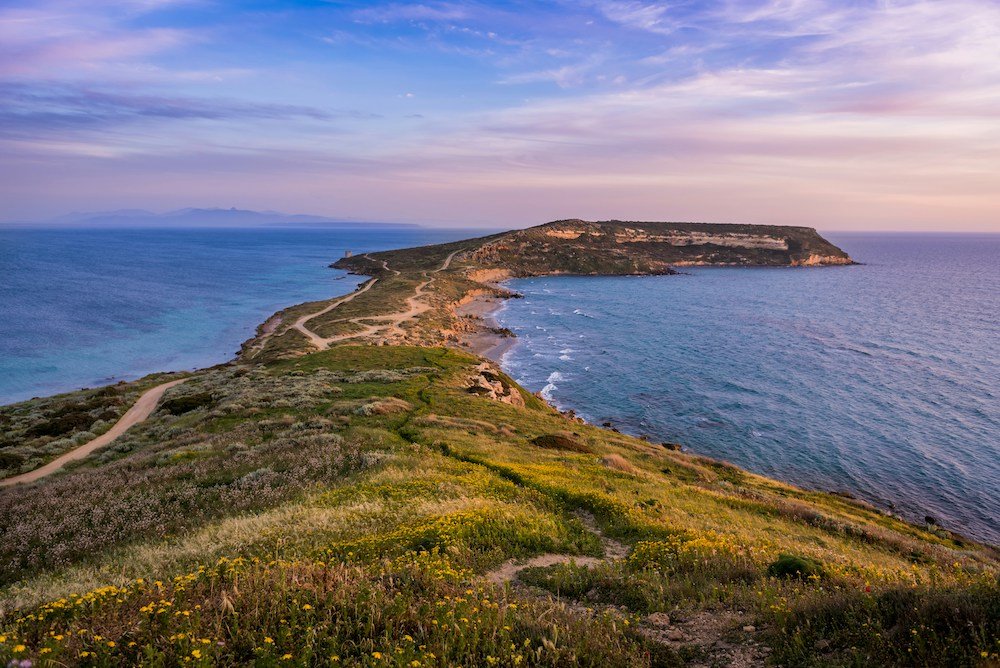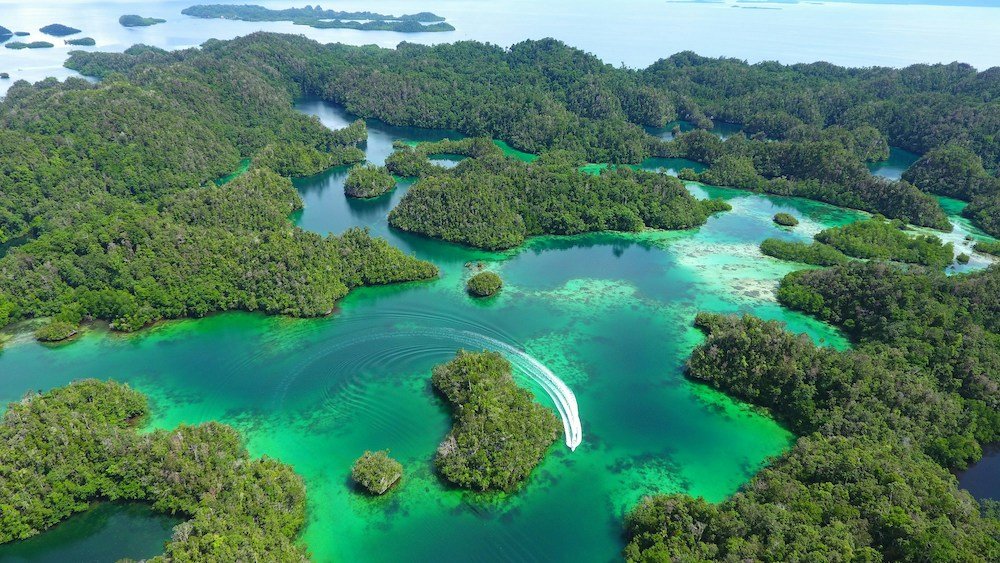
Do you want to discover what the difference is between a private island vs peninsula?
Private islands and peninsulas are two distinct types of geographical features that hold allure for property owners and investors alike.
While both offer unique opportunities for ownership and development, they also present distinct characteristics and considerations that differentiate them in the real estate market.
Private islands, as the name suggests, are landmasses entirely surrounded by water, offering a high degree of privacy and exclusivity.
In contrast, peninsulas are landforms that extend into bodies of water and are connected to the mainland by a narrow strip of land.
Understanding the defining features and differences between private islands and peninsulas is essential for individuals seeking to invest in waterfront properties or embark on unique real estate ventures.
Distinguishing between private islands and peninsulas is crucial for prospective buyers and investors for several reasons.
Firstly, it helps clarify the type of property that best aligns with their preferences, lifestyle, and investment goals.
Whether seeking the utmost privacy of a secluded island retreat or the accessibility and connectivity of a coastal peninsula, understanding these distinctions enables informed decision-making.
Moreover, understanding the differences between private islands and peninsulas provides insights into the unique challenges and opportunities associated with each type of property.
Factors such as accessibility, development potential, and environmental considerations vary significantly between private islands and peninsulas, influencing property values and investment returns.
By exploring the distinctions between private islands and peninsulas, individuals can gain a deeper understanding of the diverse options available in the waterfront real estate market.
This knowledge empowers buyers and investors to make informed choices that align with their lifestyle preferences, financial objectives, and long-term vision for property ownership.
Private Islands

Definition and Characteristics
Private islands are secluded landmasses completely surrounded by water, offering unparalleled privacy and exclusivity to their owners.
These islands vary in size, location, and geographical features, ranging from tropical paradises with pristine beaches to rugged landscapes with lush vegetation.
The defining characteristic of a private island is its isolation from the mainland, providing a serene retreat for those seeking solitude and seclusion.
Advantages of Owning a Private Island
- Ultimate Privacy and Exclusivity: Private islands offer a level of privacy unmatched by other types of properties. Owners can enjoy exclusive access to their slice of paradise without the intrusion of neighbors or tourists.
- Customization and Personalization: Owners have the freedom to customize and develop their private islands according to their preferences and vision. Whether creating a luxury resort, eco-friendly retreat, or personal sanctuary, the possibilities for development are endless.
- Escape from the Ordinary: Private islands provide an escape from the stresses of everyday life, allowing owners to immerse themselves in nature and disconnect from the outside world.
- Investment Potential: Private islands can serve as lucrative investment opportunities, with the potential for appreciation over time. As demand for exclusive waterfront properties continues to grow, private islands remain highly sought-after assets in the luxury real estate market.
Challenges and Considerations
- Accessibility: One of the primary challenges of owning a private island is accessibility. Depending on its location, reaching the island may require transportation by boat, helicopter, or seaplane, which can be costly and logistically challenging.
- Infrastructure: Developing and maintaining infrastructure on a private island can be complex and expensive. Owners must invest in essential amenities such as utilities, docks, and buildings to ensure comfort and functionality.
- Maintenance: Private islands require ongoing maintenance to preserve their natural beauty and infrastructure. This includes landscaping, structural upkeep, and environmental conservation efforts, which can be demanding and costly.
Examples of Famous Private Islands Around the World
- Necker Island (British Virgin Islands): Owned by Richard Branson, Necker Island is renowned for its luxurious accommodations and eco-friendly initiatives, making it a favorite destination for celebrities and high-profile guests.
- Musha Cay (Bahamas): Owned by illusionist David Copperfield, Musha Cay offers pristine beaches, upscale amenities, and unparalleled privacy for discerning travelers seeking an exclusive island getaway.
- Little Palm Island (Florida Keys, USA): This intimate private island resort features luxurious accommodations and a secluded atmosphere, making it a popular destination for honeymooners and romantic getaways.
- Thanda Island (Tanzania): Thanda Island is a private marine reserve known for its luxury villas, conservation efforts, and stunning natural beauty, offering guests a unique blend of adventure and relaxation.
- The World Islands (Dubai, UAE): This ambitious development project consists of a collection of artificial islands shaped like a world map, offering ultra-luxurious residences and amenities for affluent buyers seeking unparalleled exclusivity.
Peninsulas
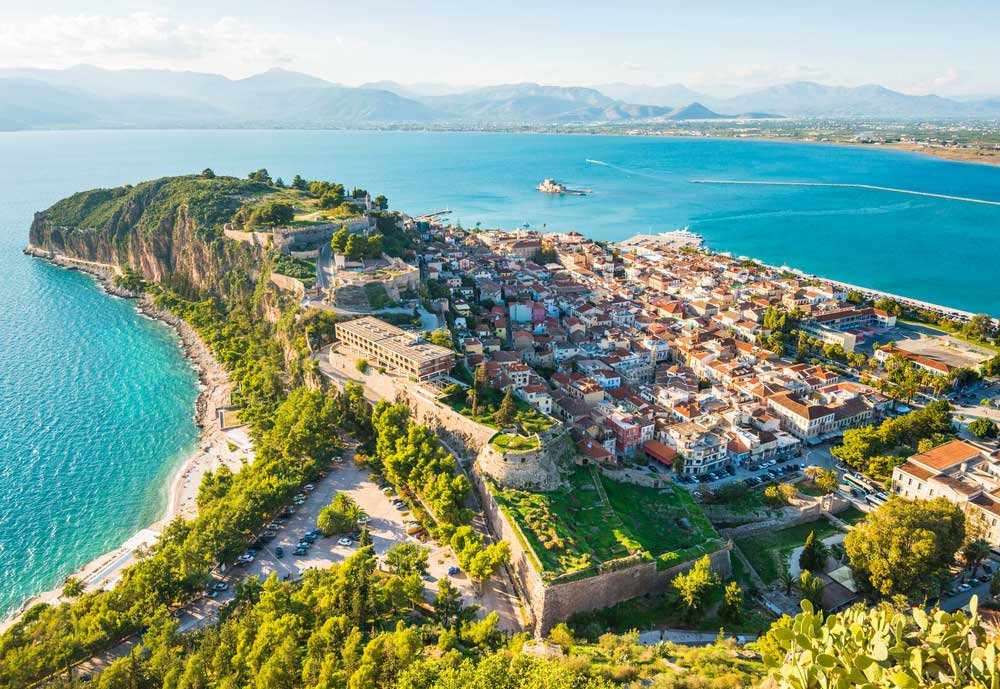
Definition and Characteristics
A peninsula is a geographical landform that extends into a body of water and is connected to the mainland by a narrow strip of land.
Unlike private islands, which are entirely surrounded by water, peninsulas offer a unique blend of waterfront access and connectivity to the mainland.
Peninsulas vary in size and shape, ranging from small promontories to large coastal landmasses with diverse ecosystems and landscapes.
Advantages of Owning a Peninsula
- Waterfront Access: Peninsulas provide owners with direct access to the water, offering opportunities for swimming, boating, fishing, and other recreational activities.
- Connectivity to the Mainland: Unlike private islands, peninsulas are connected to the mainland, providing convenient access to essential services, amenities, and transportation networks.
- Scenic Views and Natural Beauty: Peninsulas boast stunning waterfront vistas and panoramic views of the surrounding landscape, making them ideal settings for waterfront living and outdoor recreation.
- Development Potential: Peninsulas offer ample space for development and customization, allowing owners to create unique residential, commercial, or recreational properties tailored to their preferences and vision.
Challenges and Considerations
- Property Accessibility: Some peninsulas may have limited accessibility due to geographical features such as rugged terrain, steep cliffs, or narrow access points, which can pose challenges for transportation and development.
- Development Regulations: Peninsulas are often subject to zoning laws, environmental regulations, and development restrictions aimed at preserving natural habitats, protecting coastal ecosystems, and ensuring sustainable land use practices.
- Environmental Factors: Peninsulas are susceptible to environmental factors such as erosion, sea level rise, and storm surges, which can impact property values, infrastructure, and overall livability.
Examples of Notable Peninsulas
- Istrian Peninsula (Croatia): Known for its picturesque coastline, historic towns, and Mediterranean cuisine, the Istrian Peninsula is a popular tourist destination and residential hotspot in the Adriatic Sea.
- Yucatán Peninsula (Mexico): This expansive peninsula is home to pristine beaches, ancient Mayan ruins, and vibrant cultural attractions, making it a sought-after destination for travelers and expatriates alike.
- Cape Cod (Massachusetts, USA): Cape Cod is a renowned vacation destination known for its sandy beaches, quaint seaside villages, and rich maritime history, offering a relaxed coastal lifestyle and scenic beauty.
- Kowloon Peninsula (Hong Kong): Situated in the heart of Hong Kong, the Kowloon Peninsula is a bustling urban district known for its vibrant nightlife, shopping districts, and cultural landmarks, making it a dynamic and diverse residential area.
- Iberian Peninsula (Spain and Portugal): The Iberian Peninsula is home to diverse landscapes, historic cities, and cultural heritage sites, offering a blend of Mediterranean charm, Atlantic coastline, and scenic countryside.
Comparison
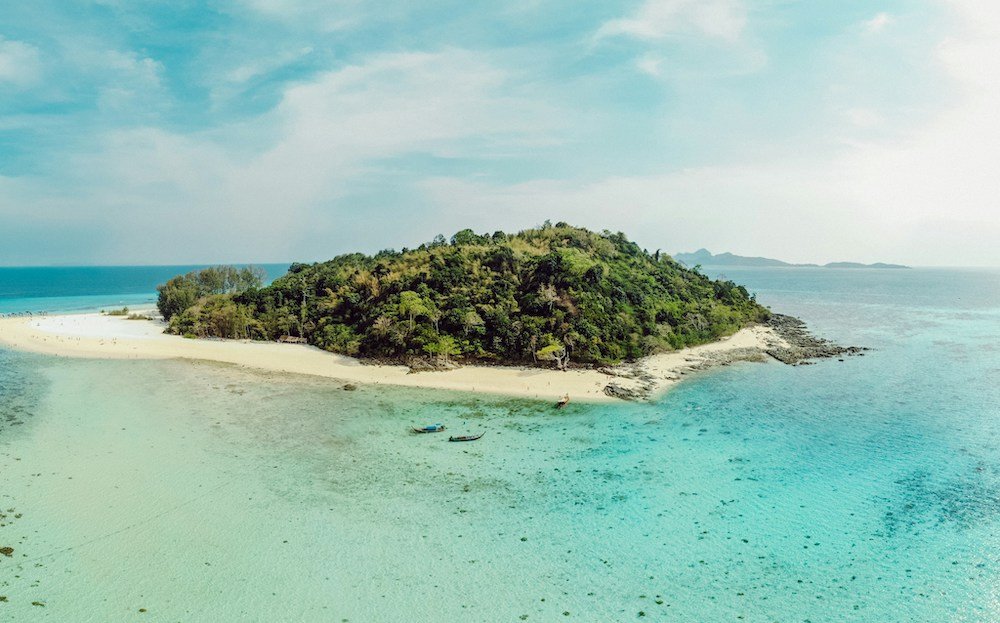
Location and Geography
Private Islands:
Private islands are typically isolated and surrounded by water, offering a secluded retreat away from the mainland.
They often feature diverse geographical landscapes, including tropical beaches, rugged coastlines, and lush vegetation.
Peninsulas:
Peninsulas are connected to the mainland and extend into bodies of water, providing a blend of waterfront access and connectivity to surrounding regions.
They offer diverse geographical features, ranging from sandy beaches and coastal cliffs to scenic hillsides and waterfront properties.
Privacy and Exclusivity
Private Islands:
Private islands offer unparalleled privacy and exclusivity, providing owners with complete control over their secluded retreat.
They offer a sanctuary away from the prying eyes of neighbors and tourists, making them ideal for individuals seeking ultimate seclusion.
Peninsulas:
While peninsulas offer waterfront access and scenic views, they may have less privacy compared to private islands due to their connection to the mainland.
However, some peninsulas offer exclusive residential communities and gated developments that provide a sense of privacy and security.
Investment Potential
Private Islands:
Private islands can serve as lucrative investment opportunities, with the potential for appreciation over time.
They appeal to high-net-worth individuals, celebrities, and investors seeking exclusive waterfront properties for personal use or development.
Peninsulas:
Peninsulas offer diverse investment opportunities, ranging from residential developments and commercial projects to tourism and hospitality ventures.
They appeal to a broader market of buyers and investors looking for waterfront properties with accessibility and development potential.
Lifestyle and Amenities
Private Islands:
Private islands offer a unique lifestyle characterized by luxury, seclusion, and natural beauty.
Owners can enjoy personalized amenities such as private beaches, luxury accommodations, and recreational facilities tailored to their preferences.
Peninsulas:
Peninsulas offer a diverse range of lifestyle options, including waterfront living, outdoor recreation, and access to urban amenities and cultural attractions.
They appeal to individuals seeking a blend of coastal living, community engagement, and convenience.
Factors to Consider When Choosing Between a Private Island and Peninsula

Budget and Affordability
Private Island:
- Private islands typically command higher price tags due to their exclusivity and limited availability.
- Buyers should consider the upfront costs of purchasing a private island, as well as ongoing expenses such as maintenance, infrastructure development, and utilities.
Peninsula:
- Peninsulas may offer more affordable options compared to private islands, depending on location, size, and development potential.
- Buyers should assess their budget and financial resources to determine the feasibility of acquiring and developing a peninsula property.
Personal Preferences and Lifestyle
Private Island:
- Private islands appeal to individuals seeking ultimate privacy, seclusion, and exclusivity.
- Buyers should consider their lifestyle preferences, such as desire for solitude, connection with nature, and appreciation for waterfront living.
Peninsula:
- Peninsulas offer a blend of waterfront living and connectivity to surrounding communities.
- Buyers should assess their lifestyle preferences, such as desire for social interaction, access to urban amenities, and convenience of mainland proximity.
Long-Term Plans and Goals
Private Island:
- Private islands offer opportunities for personalized development and customization, catering to the owner’s long-term vision and goals.
- Buyers should consider their long-term plans for the island, such as residential development, eco-tourism ventures, or conservation initiatives.
Peninsula:
- Peninsulas offer diverse opportunities for residential, commercial, and recreational development, depending on zoning regulations and environmental considerations.
- Buyers should assess their long-term goals for the peninsula, such as community engagement, investment returns, and environmental stewardship.
Conclusion
In summary, private islands and peninsulas represent distinct types of waterfront properties, each offering unique advantages and considerations for buyers and investors.
Private islands are characterized by their isolation, exclusivity, and ultimate privacy, while peninsulas provide a blend of waterfront access and connectivity to the mainland.
When choosing between a private island and peninsula, it’s essential for buyers and investors to carefully consider their individual needs, preferences, and lifestyle goals.
Factors such as budget, personal preferences, and long-term plans should guide decision-making to ensure alignment with the desired vision for waterfront ownership.
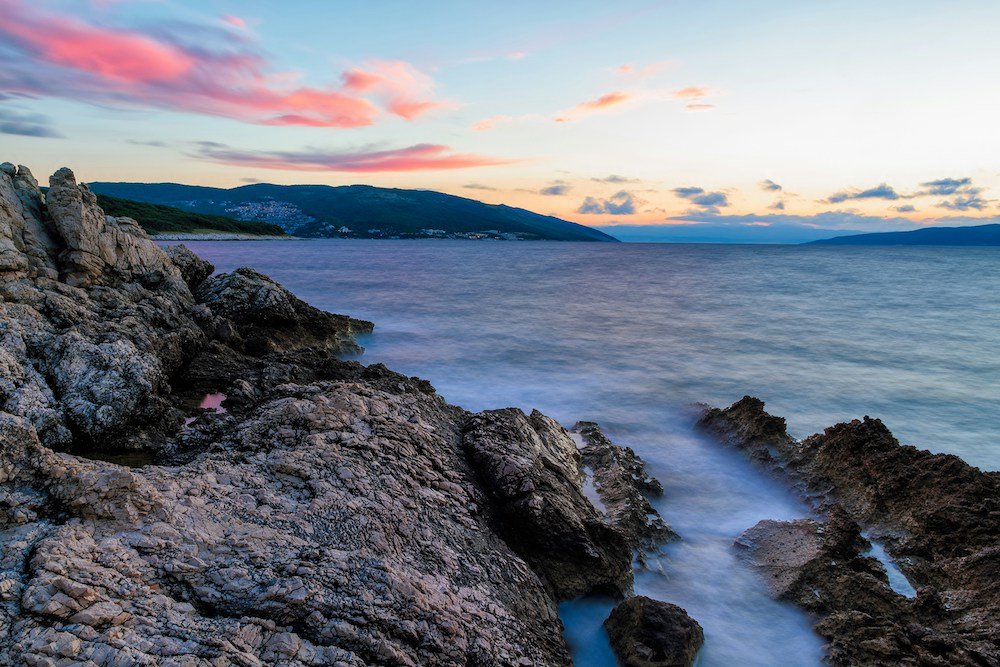
FAQ’s About Island vs Peninsula:
How is Peninsula Different from an Island?
A peninsula is a landform that extends into a body of water and is connected to the mainland by a narrow strip of land, while an island is a landmass entirely surrounded by water.
The key difference lies in their connection to the mainland, with peninsulas providing a land bridge to the larger landmass, and islands being isolated by water.
Which is Better: Peninsula or Island?
The preference between a peninsula and an island is subjective and depends on individual needs and preferences.
Private islands offer ultimate privacy, while peninsulas provide a blend of waterfront living and connectivity to the mainland.
The choice depends on factors such as lifestyle, budget, and the desired level of seclusion.
Can a Peninsula Become an Island?
Yes, geological processes such as sea level rise or tectonic activity can potentially transform a peninsula into an island.
Changes in water levels or the widening of water channels may result in the isolation of a landmass, causing it to transition from a peninsula to an island over an extended period.
What is the Difference Between a Peninsula and an Archipelago?
A peninsula is a landmass connected to the mainland, extending into a body of water, whereas an archipelago is a group or chain of islands clustered closely together.
The main distinction lies in the arrangement of landforms, with a peninsula being a singular extension and an archipelago comprising multiple islands.
What are the 4 Major Peninsulas of the World?
- Arabian Peninsula: Located in Southwest Asia, it is the largest peninsula in the world, encompassing countries like Saudi Arabia, Yemen, and Oman.
- Indian Peninsula: Also known as the Indian subcontinent, it includes the countries of India, Pakistan, Bangladesh, and Sri Lanka.
- Antarctic Peninsula: Extending towards South America, it is the northernmost part of Antarctica.
- Kamchatka Peninsula: Situated in northeastern Russia, it extends into the Pacific Ocean and is known for its volcanic activity.
What is the Biggest Peninsula in the World?
The Arabian Peninsula holds the title of being the largest peninsula globally.
Spanning a vast area in Southwest Asia, it includes countries such as Saudi Arabia, Yemen, Oman, the United Arab Emirates, and others.
The Arabian Peninsula is renowned for its diverse landscapes, including deserts, mountains, and coastal regions.
